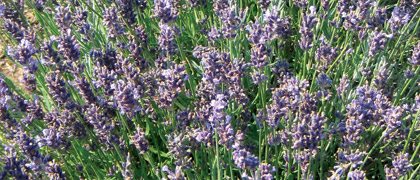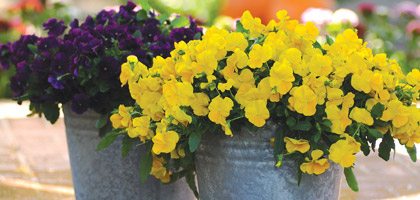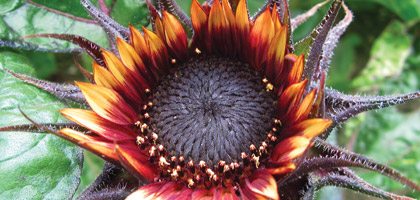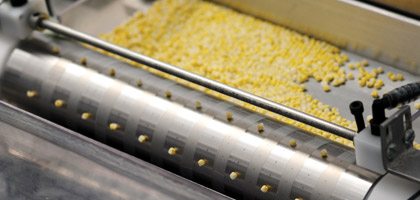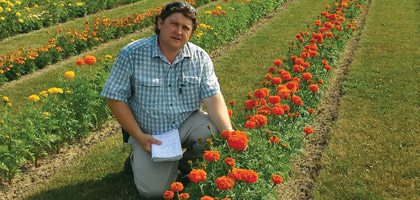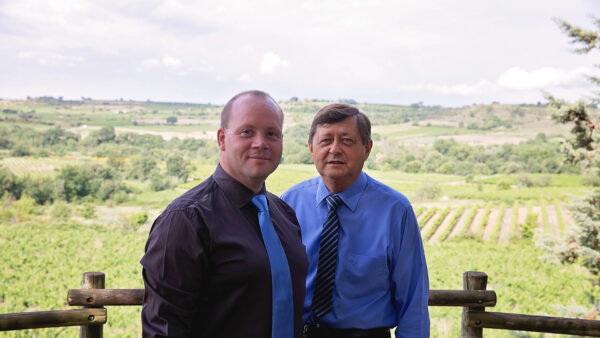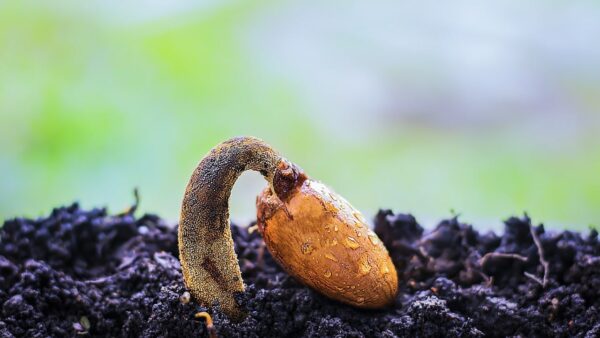Floriculture Industry Plays Favorites
Breeding efforts focus on improving familiar varieties.
The adage referring to the circuitous nature of things—“what’s old is new again”—could be an apt description for today’s floriculture industry. Growers, whether they churn out a thousand flats of bedding plants or plant a few sunflowers for cutting, seem to want the same thing—flowers that are familiar, but with a new twist.
Creating products with this pairing of reliability and beauty serves as the foundation for today’s plant breeding and product development programs.
Familiar and Fantastic
For the home gardener, easy-to-grow flowers top the list of best sellers from W. Atlee Burpee selections. Sunflowers, zinnias, cosmos and marigolds that offer something new or a bit unique grab their customers’ attention, says product manager Venelin Dimitrov. “Gardening with flowers is like fashion. Consumers are looking at what is new and trendy.”
For that reason, the Pennsylvania-based company chooses to take those familiar ornamentals and devote research efforts into producing new varieties with unusual or bold colors, low maintenance requirements and a hardiness that will help the plant bloom through all kinds of conditions. Some plants being trialed currently include an echinacea with more fragrance, a double-flowered zinnia and early blooming lavender.
Johnny’s Selected Seeds, a seed supplier in Winslow, Maine, finds the needs and wants of their core customer, the fresh market grower, to be similar. “A lot of our customers are veggie growers who supplement those sales with flowers. They prefer classic, easy-to-grow flowers that have some uniqueness and make a natural-looking arrangement,” says Paul Gallione, technical and production education coordinator.
Two of their newest offerings include an aster and rudbeckia with needled or quilled-type blooms.
Commercial growers are seeking out reliability in the form of new seed products from companies like PanAmerican Seed. “Growers are looking for higher germination rates and more uniform crops for easy production. Consumers are looking for the best garden performance with great color and easy maintenance,” says Matt Kramer, research director at PanAmerican Seed.
Nearly four years ago, PanAmerican Seed introduced multi-species multi-seed pellets for its Fuseable line. Advances in seed technology make this product easier to sow and it promises a mixed but balanced and natural-looking plant combo with tried-and-true blooms like petunias, bacopas and lobelias.
The company also sees value in building upon its popular Wave brand petunia. Earlier this year they introduced the Cool Wave pansy, known for its hardiness and trailing habit.
Kramer promises that other Wave brand expansions are coming, including new colors and textures in the Wave Petunia series. It’s been nearly 18 years since PanAmerican Seed introduced the Wave brand.
PanAmerican Seed has expanded their popular Wave brand series with the introduction of the Cool Wave Pansy, known for its hardiness and trailing habit.
Status of Specialty Seed
Although flower enthusiasts can find more organic and heirloom seed on the market today, there is little demand for it, Dimitrov says. He surmises that organic preferences are focused on plants that are consumed. As for heirlooms, hybrids outshine them in disease and stress resistance. “Old heirloom flowers set seed and die back. They have a shorter bloom period. Here and there, people will try them but they always go back to hybrids.”
Gallione of Johnny’s Select Seeds said they see some interest in organic seed but not a lot of interest in heirloom varieties. Like Dimitrov, he sees those options being more popular in the vegetable world, for instance — the taste qualities associated with heirlooms.
Growers do like untreated seed but with more companies moving toward pelleted offerings, options are becoming limited, Gallione says.
They might not carry specific specialty labels, but Johnny’s Select Seeds has seen interest grow in flower types known to support pollinators and predators and now offers two seed mixes, a beneficial insect attractant and a bee feed.
One of Burpee’s newest sunflowers, Ms. Mars, is a smaller version of this garden favorite, making it ideal for container and small space gardens.
Dealing with Downy Mildew
In terms of disease issues, downy mildew in impatiens has had a significant impact on the floriculture industry in recent years. Some of the first regional outbreaks among the classic bedding plants were detected in 2011 and by the end of the 2012 growing season, the disease had spread to 34 states.
Kramer says PanAmerican Seed has worked hard to provide education and resources for customers, including a comprehensive growers’ guide for those raising Impatiens walleriana. The company’s breeding team is also exploring various avenues for improving disease resistance in impatiens. “At the same time, we understand the nature of the market and have also increased our efforts to provide a wide range of plants to serve as alternatives where impatiens have been lost, including New Guinea impatiens, an impatiens product highly resistant to downey mildew, begonia, coleus and other shade varieties,” Kramer notes.
While some scientists have been urging greenhouse growers and gardeners to seek out alternatives, Burpee’s Dimitrov says they are encouraging customers to buy impatiens seed and grow their own at home. “This is not a seed-borne disease. If gardeners have a good seed source and sterilized and hygienic soil, impatiens can be grown successfully.”
The new multi-species Fuseables Precision Multi-Pellet from PanAmerican Seed offers commercial growers reliability from the point of planting.
What Does the Future Hold?
Offering sustainable products, both for the commercial and home grower, will continue to be important.
“We are the original ‘green’ industry so it follows that we are doing everything we can to make our products more sustainable. Plants bred with cold tolerance can reduce energy use in the greenhouse. Plants bred with heat or drought tolerance can reduce water use in the home garden. As the consumer becomes more aware of sustainability issues, promoting these plant traits will make them more attractive to the eco-conscious market,” Kramer notes.
In light of the container garden trend, which continues to be very popular, Venelin Dimitrov says it’s fortuitous that breeding efforts include improving drought tolerance in plants. “If you have a plant with low water needs it might mean the difference between life and death in a container. This is proving to be an important attribute to plants in the ground too, considering the extremely hot weather we’ve seen.”
Helping consumers to explore the boundaries of gardening with the right plants also holds potential.
Extension of the growing season is gaining in popularity. In addition to PanAmerican Seed’s introduction of the Cool Wave pansy, the company has also identified several crop options, called ‘Mum Pals,’ referring to chrysanthemums. “These grow alongside traditional mums and meet certain criteria including easy-to-grow and are relatively inexpensive for summer production, a wide variety of plants habits and flower types for use in landscapes and home gardens and a focus on colors popular in the autumn,” Kramer says.
Seed breeders are also looking at ways to break the boundaries that dictate traditional growing areas for plants. Burpee now offers two hardy lavenders, ‘SuperBlue’ for cold, northern climates and ‘Phenomenal’ which endures the heat and humidity of the south.
Burpee product manager Venelin Dimitrov says easy-to-grow flowers, like marigolds, are a favorite selection among their customers.
What Recession?
While many industries are just now seeing measured recovery from the Great Recession, flower seed sales, especially on the consumer and fresh market end, remained strong during or even benefited from the economic downturn.
Dimitrov attributes that to the minimal investment and effort flowers require in return for the great curb appeal they offer. “Growing flower gardens from seed is one of the best ways to improve the value of your property. Also, flowers are a great mood elevator and promote more positive social behavior.”
At Johnny’s Select Seeds, a date much earlier on the calendar serves as a milestone of sorts for product demand—the year 2000 and speculation that came with ‘Y2K.’ Gallione said some of the rather wild predictions about a collapsing economy prompted renewed interest in home gardening and their seed sales have been growing ever since. “We’ve seen no change in flower seed sales from the recession. Our exponential growth came around Y2K and we’ve been able to sustain that in a very positive way.”
Maria Brown


